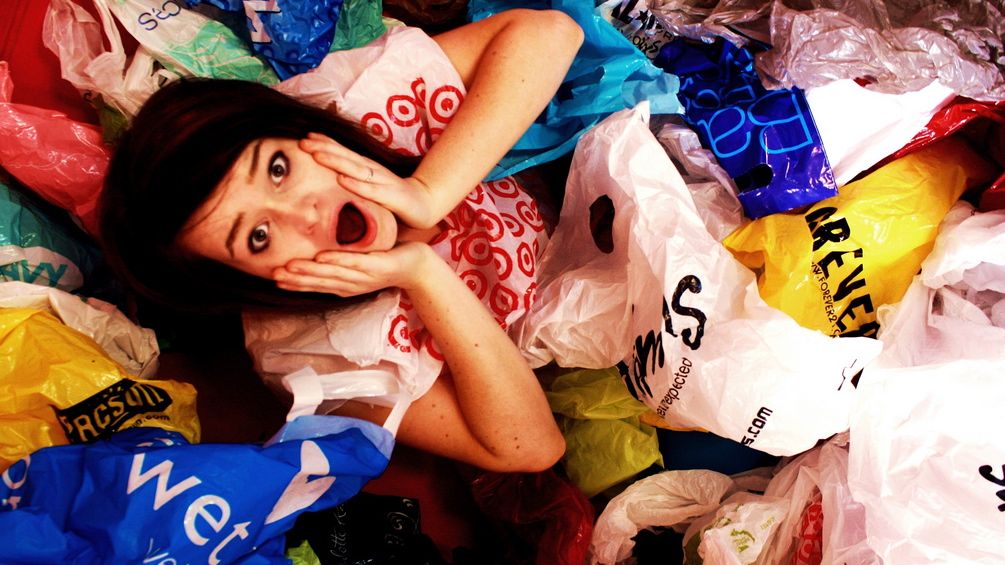Send your question to Umbra!
Q. I do my best to avoid plastic bags, but it takes a lot of planning to completely avoid getting them — e.g., if I decide to buy items like Brussels sprouts that need to be corralled before going into my reusable bags. Do the plastic bags that supermarkets offer to recycle really get recycled? If not, I really need to get serious about planning ahead.
Jim P.
Newton, Mass.
A. Dearest Jim,
I can empathize with your plight. I, too, have dashed off to the grocery to pick up “just a thing or two,” only to emerge laden with impulse radishes, string beans, or those alluring Brussels sprouts. While your checker no doubt thanks you for confining them to a plastic produce bag, your conscience may not.
Don’t beat yourself up about it, though: The bags that end up in the supermarket recycling barrel do indeed find new life. Most grocery-store sacks are made of thin (10 millimeters or less) polyethylene resin, aka plastic film. When clean, the stuff – along with its cousins, bread bags, produce bags, newspaper bags, bags wrapped around paper products, and dry cleaning bags – is recyclable.
Didn’t know that? You’re not alone: Only 11 percent of “bags, sacks, and wraps” find their way to the proper recyclers, largely because many people a) don’t know that or b) wait, you’re saying I have to remember to take even more bags to the store?
In most cities, yes, you do need to drop off bag bundles at collection spots (though some places, like Grist’s hometown of Seattle, will take bagged bags in curbside bins). You can’t just throw plastic films willy-nilly into your bin because loose ones can gum up the works down at the sorting center – if they don’t blow away and get stuck in a tree first. This handy database will help you find your nearest dropoff site.
From the grocery’s collection, the bags are shipped off and remade as (most often) plastic lumber, pallets, containers, crates, pipes, shiny new plastic bags, and, most scientifically scintillating, nanotube membranes for energy storage and biomedical uses.
Even knowing this, I still urge you to get serious about reuse. Errant plastic bags pile up in landfills, smother coral reefs, choke sea turtles, and make neighborhoods look, well, trashy. Recycling them is certainly a better choice, but that still requires energy; reusing bags simply requires remembering to take them to the store.
Yes, yes – easier said than done, and sometimes those tempting Brussels sprouts are just too good to pass up. But since you’ve already mastered the art of taking the reusable shopping bag along, why not stash a few produce bags from your collection into each bag? Even better, do the same with a few reusable produce bags (attention Jim’s friends: Have I got a stocking stuffer idea for you!). For good measure, store a few more with your bike, in your car, or tucked into your backpack or briefcase. Writing “TAKE BAGS” on the top of your shopping list is another tried-and-true tactic.
Or why not copy one of the most effective memory joggers out there and tax yourself every time you forget? Charging just an extra nickel per bag has helped stores change shoppers’ behavior; even if your local supermarkets don’t ding you, you can set aside a quarter or a dollar per bag and donate it to your favorite environmental cause. It’ll take discipline, but I believe in you, Jim.
Rustlingly,
Umbra



